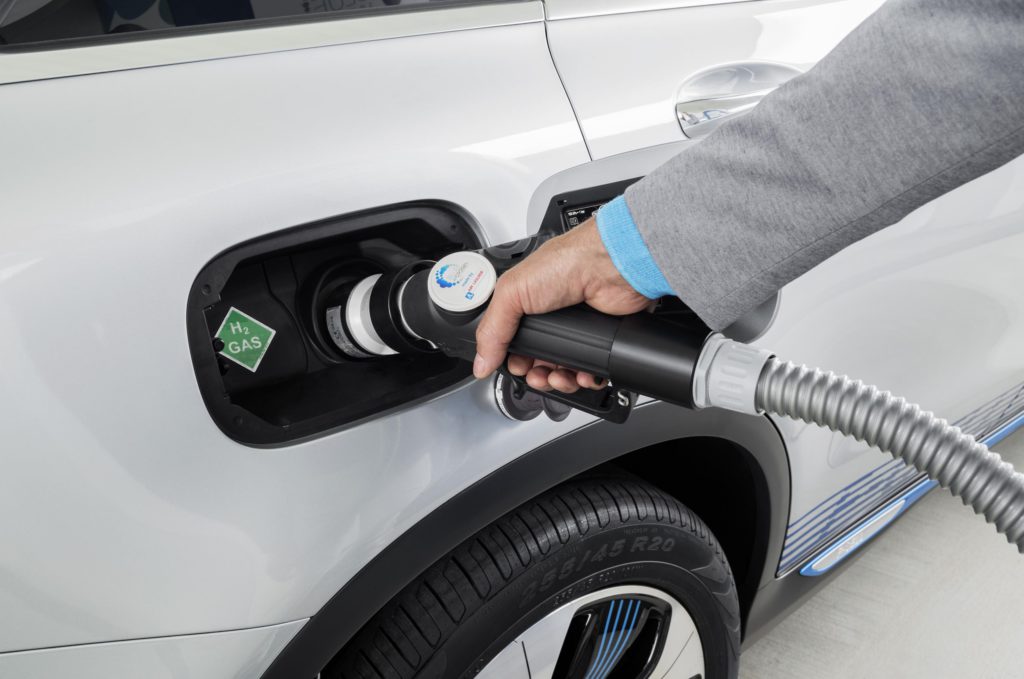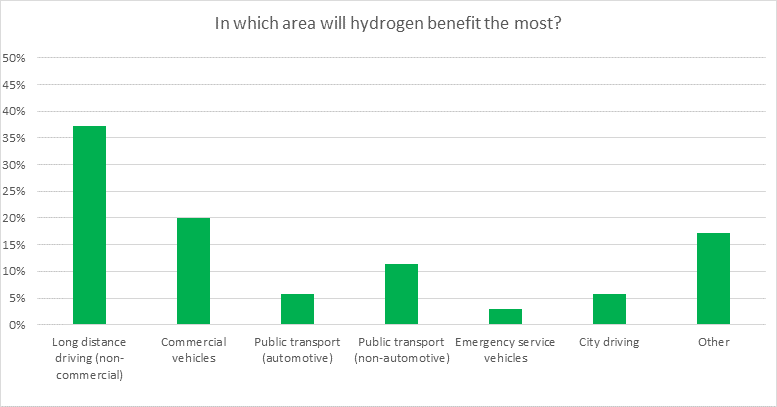Hydrogen best suited for long-distance driving
13 September 2019

Hydrogen best suited for long-distance driving
13 September 2019
All carmakers are pursuing electrification strategies to drive down the carbon emissions from their fleets but many manufacturers are also developing hydrogen power solutions. In the latest Autovista Group survey, more than a third of respondents expressed the view that hydrogen will benefit the most from long-distance, non-commercial, driving.

Hydrogen technology is being developed at a slower rate than electric systems, perhaps due to the urgent need for carmakers to deploy low-emission vehicles. However, the benefits of hydrogen are clear, with shorter fuelling times and longer driving range, together with emissions of only water. While not as developed as electric vehicles (EVs), carmakers are exploring the technology with a view to releasing fuel cell vehicles (FCVs) in the next decade, while both Toyota and Hyundai already have vehicles on the market.
Respondents commented that ′hydrogen has got to be the way forward – just fill up and drive, with no batteries to change every five years' but the fuel is seen more as the long-term future and ′needs more investment in a viable infrastructure.'
National governments are slowly starting to develop the hydrogen infrastructure. The UK Government, for example, has committed £23 million (€26 million) to the cause but due to the increasing uptake of electric vehicles, expanding the charging infrastructure takes priority.
Given the refuelling and range benefits of hydrogen, it is little surprise that the second most popular response as to where hydrogen will most benefit was in commercial vehicles. One in five respondents see hydrogen as having a bright future in commercial vehicle applications, with one respondent commenting that the fuel will be used in ′long-distance to commercial haulage lorries plus buses and taxis to start with, then ships and ferries.'
Non-automotive public transport was the third most popular option, gaining over 11% of the votes. A respondent highlighted plans for hydrogen-powered cruise ships, with Viking Cruises announcing plans to build the world's first cruise ship fuelled by liquid hydrogen back in 2017.
Automotive public transport only gained as many votes as city driving, with 6% each, and only 3% of respondents felt that emergency service vehicles are an application where hydrogen will most benefit.
Finally, 17% of respondents see hydrogen benefitting most from other applications. Within this, aviation was a common theme, with one respondent highlighting the future of hydrogen in propeller-driven aeroplanes.
Safety concerns
However, not everyone is convinced by the future of hydrogen, with one respondent calling the fuel a ′non-runner' that is ′too expensive and too dangerous'.
While hydrogen is seen as a credible alternative to the EV market, there have always been safety concerns. The fuel is highly combustible and it is this that many consumers feel would put them off purchasing a fuel cell vehicle (FCV).
An explosion at a hydrogen refuelling facility in Norway in June will add to these fears and could put back efforts to convince drivers that hydrogen is a credible propulsion technology in the future.
There has not been a comparable issue with an electric vehicle outside any mechanical problems, which will cement in the minds of many its safety credentials. The incident could set back confidence in hydrogen for quite some time.
However, the revelation that the hydrogen unit itself did not explode, and it was a leak instead that caused the incident, should put some fears at rest.